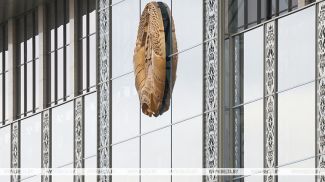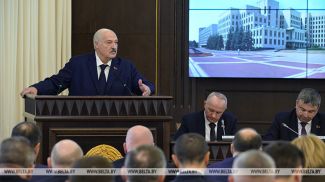MINSK, 22 October (BelTA) – It is necessary to moderate prices so that they remain affordable for households, Belarusian President Aleksandr Lukashenko said as he hosted a meeting with senior officials of the Council of Ministers on 22 October, BelTA has learned.
One of the topical issues on the agenda was the price rise. The head of state ordered to keep prices in check: “We are approaching a winter period and in addition to the COVID-19 response, we need to curb the price rise so that people will not have to struggle to survive. This pertains first and foremost to food prices,” the president said.
He noted that price rises are a very sensitive issue for people. “A crucial issue. We have officials in charge of it and they should take care of this problem. Otherwise, you will have to face the music later,” the president said addressing the attendees.
“Along with the adoption of anti-inflationary measures, we need to sort things out in the economic sectors responsible for food security. The trends that I see in the agricultural sector are sometimes alarming, though the government has lent a helping hand in every possible way,” Aleksandr Lukashenko said.
According to the head of state, harvesting has already been completed by and large. Only harvesting of corn for grain is still underway, and the president ordered to step up this work and complete it in the near future, while the weather is good. “I see that we are getting additional millions, thousands of tonnes of grain that we need. And by the end of the year our grain production might exceed 9 million tonnes. Of course, this is not 10 million tonnes of last year, but 9 million tonnes will be enough to meet the domestic needs,” the Belarusian leader emphasized.
Separately, Aleksandr Lukashenko inquired about the situation with the establishment of stabilization funds: “Here I want to remind you, executives of all levels, that since Soviet times we have been using these stabilization funds as a reserve to smooth out price surges and meet the consumer demand in the off-season. In other words, cabbage, potatoes, beets, carrots and other products that we put in storages are meant to meet the consumer demand in the autumn-winter period until a new harvest appears. Make sure these products are in good supply.”
The president noted that winter feed management and vegetable supplies will be discussed again in November.













